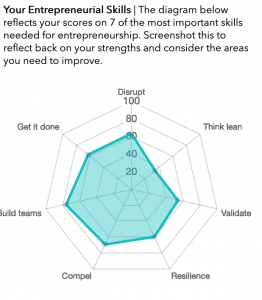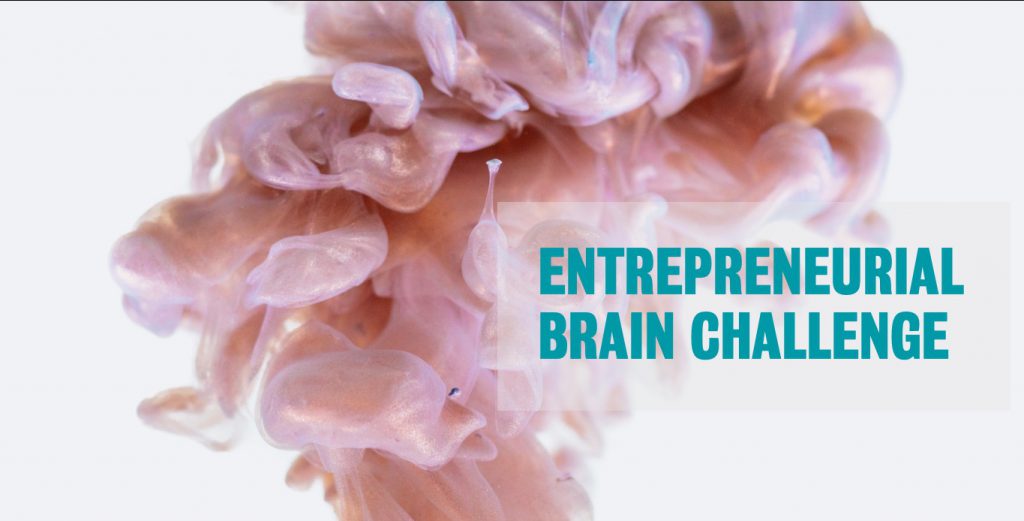Blog post by Emily Clements, PhD Student in the Neuroscience of Entrepreneurship.
PhD students and entrepreneurs are actually very similar in a number of ways.
PhD students are already very entrepreneurial by nature – there aren’t many roles you can go into and say ‘here is the gap, and this is how we are going to address it’. From the get-go you get to contribute novel findings and manage your own project. But the word ‘entrepreneur’ is something many of us may not relate to.
My PhD research explores the neuroscience of entrepreneurship. This is a collaboration between the Entrepreneurship Institute and Institute of Psychiatry, Psychology and Neuroscience at King’s. My background is cognitive neuroscience, and I knew very little about business before beginning. Therefore, I understand that to most, the word ‘entrepreneurship’ can seem intimidating and off-putting.
But entrepreneurship is not just about starting a business.
In the same way we often do our PhD because we love the topic, entrepreneurs create ventures based on their passions. Entrepreneurial behaviour is that which provokes change, drives ideas forward and compels other to follow suit. Whether for economic or societal impact, its absolutely pivotal people exist that are able to do this.
However, one key difference exists between entrepreneurs and PhD students – while there is an existing and current issue in the measurable impact of research. Entrepreneurs are consistently creating measurable impact. I think helping PhD students improve their entrepreneurial skills would create an undeniable force of informed change-makers.
PhD students should improve their ability to get-it-done and compel others of their ideas.
While both PhDs and start-ups provide new ways of doing things, in research we spend more time thinking, planning, and hypothesising. This is key and necessary to ensure we produce meaningful and informed research; however, I feel this sometimes creates a habit-behaviour in us, in which we sit around talking about things, without getting it done, perhaps one of the most important skills to learn for success in any career.
What’s more, we produce such compelling and novel work. However, often we want the complexity of our work to speak for itself based on journal publications, which anyone outside of academia doesn’t respond to. Conversely, entrepreneurs are incredibly good at pitching themselves and their ideas to everyone – PhD students should be just as confident in their expert knowledge and be able to speak about in a way that compels people outside of their field to realise its potential.
This is why I now think PhD students could learn a lot from entrepreneurs and the skills they posses.
Research by the Higher Education Policy Institute has shown 67% of PhD students want a career in academic research but only 30% stay in academia three years on. Moreover, while PhD students feel confident in analytical, data and technical skills, we tend to be less confident in managing other people and finding career satisfaction. Up until completing a PhD, many of us have only experienced and developed skills for the research world.
By developing entrepreneurial skills, those of us who leave research would be equipped with a skillset with which we can drive ideas forward, compel others and create meaningful, measurable impact. Whether starting a business or working in any industry, companies at the moment are actively investing in people who have an ability to promote change in their workplace. So why not work on these skills now?
Meanwhile those of us who stay in research make up the future generation of academics. It’s important that this generation learns to promote its own research efforts, as well as address many of the current issues and challenges we are all so aware of today. Entrepreneurial thinking already exists and is evident with the rise of open research, however we can do more; such as speeding up the pace of our work, eradicating a bullying culture, and increasing the number of women and people from BAME communities in senior academic roles.
If we learn anything from the COVID-19 pandemic, it’s the speed at which studies and labs can be set up and whole departmental structures changed. This highlights that there is possibility for change – but it needs disruption and entrepreneurial minds to push it forward.
Learning entrepreneurial skills supply you with the means to get it done, be resilient, compel others and build teams to help you make an impact.
I recommend taking part in the Entrepreneurial Brain Challenge (EBC), a project I have just launched, which makes up the first part of my PhD. By completing the challenge you can get personalised feedback on your 7 Skills of an Entrepreneurial Mindset (a framework developed by the Entrepreneurship Institute at King’s), your personality, cognitive strengths and weaknesses, as well as a pack containing resources to help you improve your weaker areas.
Emily Clements, PhD Student in the Neuroscience of Entrepreneurship.



